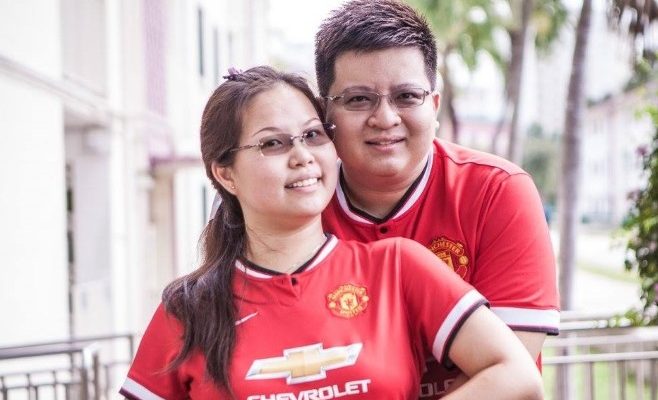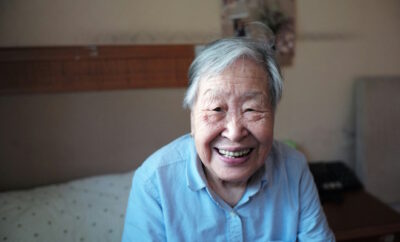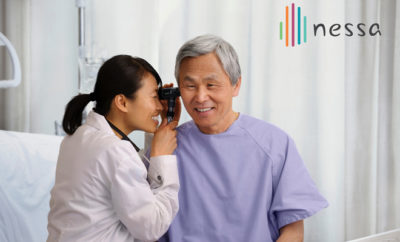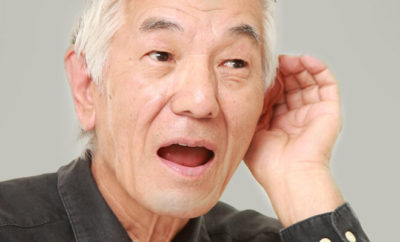
Insights + interviews
Edmund’s story about experiencing and managing hearing loss
Hearing loss is becoming a more common condition. It is inconvenient, happens gradually and becomes a challenge to many of us as we get older. Contrary to many myths about hearing loss only happening when we are elderly or that a difference in one ear is okay, hearing loss is a natural condition as we grow older. A health screening programme in 2013, found that hearing impairment (moderate hearing loss in at least one ear) for people aged 65 years and above was 87 percent.
It’s also important to understand that hearing loss can impact a person both mentally and emotionally, impacting an overall sense of well being. Several studies have linked the condition to social isolation, depression, and a decrease in the quality of life.
We speak with Edmund about his personal trials as he went through hearing loss and Nessa, a company that is looking to tackle the challenge of providing their customers with ready solutions to handle the condition.
The Active Age (AA): When did you start to realise that you were losing your hearing?
Edmund (E): Although I had faced difficulty in hearing my teachers during my school days, I coped with that difficulty by choosing seats closer to the front of the classroom and did not think too much about it. It was only when I had to undergo a national service medical checkup at seventeen that I was formally diagnosed with hearing impairment.
AA: How did you and your family react to the news?
E: My mum was really concerned and immediately brought me to see the audiologist that my dad had been visiting. Now that she knew I had this impairment too, she did not want me to be or feel less than equal than my peers. I got my first hearing aids made then.
I’m still surprised by my own emotions towards this whole episode. Instead of feeling down or depressed from the discovery of my impairment, I was more relieved and overjoyed that I finally knew why I did not hear so well. The first time I put on hearing aids was also when I felt like a whole new person experiencing a entirely new world of sounds I have not heard before.
AA: How did you adjust to using the hearing aids?
E: While the hearing aids were expensive, they did not fit well in my ears, causing much irritation which I never overcame. As the initial novelty wore off, wearing hearings aids become a chore and I stopped wearing them regularly. There were even times when I went without hearing aids for days in a row. This inconsistent wearing of hearing aids caused me to lose one side of my hearing aid, something that I kept from my parents for a long time.
In the midst of pursuing my own education, I started teaching in schools as a Robotics CCA instructor. Being an educator, we treasure our ability to hear as it allows us to listen to and understand the children under our charge. There was an episode in my class where I had difficulty hearing a question asked by a young girl sitting in the front row of my class. Even when I had my ears at her level facing her, I still could not hear anything. I was disappointed with myself for being unable to answer the question of a budding young learner, especially when I knew I could have mitigated that situation if only I had my hearing aids. That was when I decided to be a full-time hearing aids user.
My audiologist got me a new set of hearing aids and fitted them well this time round, allowing me to confidently adjust to the use of hearing aids. I am now into my fourth set of hearing aids. Each set has served me well.
AA: How has your life improved since using hearing aids?
E: I currently work at Nullspace Robotics, a robotics training company. Aside from having good technical expertise, I need to be a good communicator and listener. My work involves maintaining a close relationship with educational institutions to understand students’ needs better. I also need to ensure that I can easily understand the concerns of the children I am interacting with. Hearing aids have made it easier for me to maintain a good channel of communication with schools as well as the children under my charge, allowing me to better address their needs. This allows me to train them more effectively and impart technical skills that will make these children future-ready.
Relationships with my love ones have also improved. I no longer seem to “ignore” them like I used to and I can confidently participate in meaningful conversations with them without the fear of being off-point in my responses. With hearing aids, I will also not miss out on their needs, allowing me to attend to them when I can.
AA: How did you come to terms with your hearing loss?
E: Having a father who has led a successful life despite his hearing impairment has helped me tremendously. He showed me how despite our condition, we are no less capable than our peers and can lead a fulfilling life.
Of course, there were uncertainties, especially in the initial stages, on what my impairment is and how it would and could affect my life. To overcome this, I started researching about my condition online and consulted with an ENT doctor and audiologists. This knowledge allowed me to better explain my situation to my peers and people I interact with, giving them the chance to have a better understanding of my hearing impairment and interact with them comfortably.
Almost 2 years ago, I was introduced to Nessa. Their approach was fresh and different when compared to other traditional hearing aid companies. As I was transiting into independent living, the cost of owning and maintaining a pair of hearing aids is frightening. Nessa helped me find an appropriate solution, and their team of audiologists and consultants were very patient and understanding in helping me find the right pair of hearing aids that suited my lifestyle. This helped ease the burden of the disability on my shoulders and helped me transit towards starting my own family with much less worries and troubles.
AA: What hearing-loss related prejudices have you encountered so far, and how did you deal with them?
E: I am glad to be blessed with family, friends and colleagues who understand my situation without questioning my ability to be among them. This has allowed me to lead a fulfilling life with experiences that I can only be thankful for.
I wouldn’t classify my experience as prejudices but more of a lack of initial understanding and innocent fun-seeking. While hearing aids help me in my communication with others, certain settings proved to be more challenging when it comes to communicating with others. There were many occasions where people I was speaking with displayed irritation when I asked them to repeat their sentences. It is only after sharing my disability with them that they become more understanding. Another common experience comes in the form of seemingly innocent “tests of hearing difficulty”.
AA: What are some life hacks someone suffering from hearing loss – or who suspects to have hearing impairment – can implement day-to-day?
E: Here’s a list of tips and hacks that have helped me through the years.
- Look up your condition online. While not all online sources are accurate, read widely and be critical of what you read. Through comparing the points proposed by various authors and organisations, we gain a better understanding of our condition.
- Consult an ENT doctor or an audiologist for a test upon suspicion of hearing impairment. There is no harm getting our ears checked, especially since these checks are widely available. Also include regular hearing tests as part of your overall health regimen.
- Be positive about yourself! We are as normal as we see ourselves to be. Hearing impairment doesn’t make us any less of a person and should not be an excuse preventing us from pursuing our dreams and passion.
- Don’t be afraid of how others might view you. If you can’t hear, go nearer or ask for a repeat. It is more important to have a clear understanding of what is communicated than to maintain our image.
- Use earplugs when you are in loud environments. These can help prevent hearing injury, especially when exposed to loud sounds above 85 decibels.
- What is too loud or too soft? Apply the 60-60 rule. If you listen to a portable music player, keep the volume at 60% of the maximum for no longer than 60 minutes.
- Don’t insert objects into your ear as you can potentially damage your eardrum.
Responses and pictures are credit to Edmund and Nessa.









